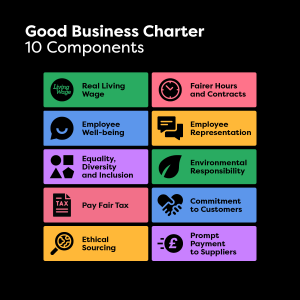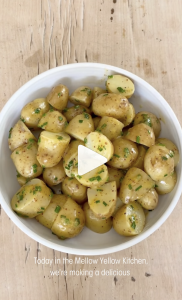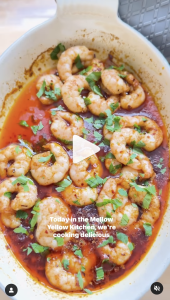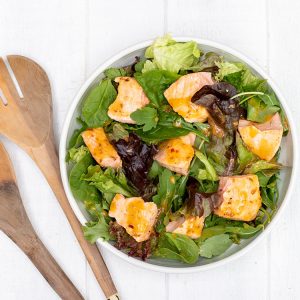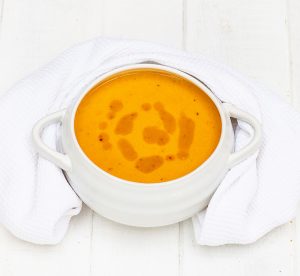Global pandemics, inflation, conflicts, food shortages, climate change…. there’s no denying the fact that the world faces multiple challenges right now, many of which are having a big impact on the cost of living and consequently, the cost of food.
Here at Farrington’s Mellow Yellow, we’ve seen first-hand how this has impacted production lines – raising the price tag for everyone along the way, and eventually you – the end consumer. We’ve fought hard to keep the cost of our Mellow Yellow Rapeseed Oil and dressings as low as possible and we wanted to share a little bit about how (and why) we’ve chosen to do that.
Making good quality rapeseed oil accessible
Food brings people together and is a wonderful salve during testing times. A symbol of a life shared, cooking is a part of who we are, and we firmly believe that putting a great meal on the table, made with quality ingredients, shouldn’t cost a small fortune.
There are a few reasons why we’ve seen the prices of culinary oils explode in the last two years. The Ukrainian conflict, combined with the extreme heat and wildfires in the Mediterranean have led to huge inflationary pressures, with prices doubling in many cases. Whilst the initial shocks of the conflict have somewhat subsided, the continued difficulties in olive oil producing regions due to extreme weather conditions and disease destroying olive trees, is leading to a longer-term shortage of olive oil globally, with escalating price increases as a result.
While many oils have increased in price, at Farrington’s Mellow Yellow we have manged to keep price rises to an absolute minimum. This of course, hasn’t come without challenges! The cost of our electricity tripled at one point and the price of our glass bottles increased dramatically due to the high energy used to manufacture glass. It’s been tricky at times, but we have managed to pick our way through the hurdles to avoid the difficult scenario of hefty price increases and wage decreases, ensuring that our loyal team continue to have fair and reasonable pay. And you – our loyal customers – can continue to enjoy Farrington’s Mellow Yellow in all of your favourite dishes.
The graph below illustrates how Mellow Yellow Cold Pressed Rapeseed Oil compares to a leading brand of olive oil over the last two years, showing that you can continue enjoying the wonderful taste, versatility, health and sustainable values of Mellow Yellow, without costing the earth.
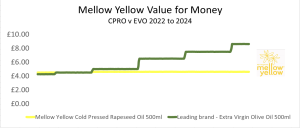
This next graph shows a similar story with our delicious chilli oil which is gaining a loyal following of customers who enjoy something a little warmer in their recipes or simply drizzled over pizza, salad and favourite meals.
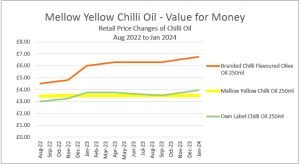
This final graph shows how Farrington’s Mellow Yellow dressings remain excellent value for money in comparison to other leading brands. We have compared prices against similar products, but it is only a Mellow Yellow dressing that is made from unrefined cold pressed rapeseed oil, with great quality ingredients and absolutely ZERO additives, preservatives, or artificial stabilisers.
There are of course cheaper alternative dressings, but many of these come with a long list of processed ingredients. Mellow Yellow dressings are made just as you would do at home, but with our thoughtful ingredient profile and delicious flavours, you can leave the hard work to us and simply enjoy drizzling Farrington’s Mellow Yellow on your favourite salads!
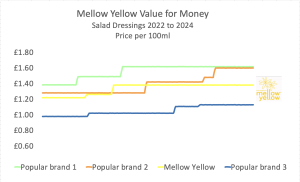
Whatever your choice in oils and salad dressings, if you haven’t already tried the delicious flavours of Farrington’s Mellow Yellow, now is the perfect opportunity to search them out knowing that not everything good costs the earth. And if you’re an existing customer who is enjoying Mellow Yellow products in your home cooking, we would like to give you our heartfelt thanks for supporting our family business. We hope that our great values continue to inspire you!
Here at Farrington’s Mellow Yellow, we are very proud of the delicious range of rapeseed oils and salad dressings produced on our farm. Ever since launching Mellow Yellow in 2005 as the first cold pressed rapeseed oil in Britain to be sown, grown, pressed and bottled on the farm, I have been driven by the ambition to produce the very best we can; to create sustainable food with quality and integrity at its heart. From our small beginnings producing a few bottles a year, to today, with the support of our dedicated team in our factory at Bottom Farm, those values remain as important today as they were on day one.
Over the coming months, we’ll be sharing with you some of the core values behind Mellow Yellow. Because in the current climate, we believe that value is imperative to get right – for you, our valued consumer, but also for everyone involved in the journey from seed to bottle.
It could be the health values of Mellow Yellow, which as a cold pressed rapeseed oil has the lowest saturated fat of any culinary oil; is high in Omega-3; and packed with cholesterol busting plant sterols (over twice as much found in extra virgin olive oil, for example). Then there is value for money. At a time when the price of food is rising alongside the escalating cost of living, Farrington’s Mellow Yellow products offer exceptional value in comparison to many alternatives, some of which have more than doubled in cost.
We’ll look at the environmental and social values of Mellow Yellow, which as an oil grown from British rapeseed to LEAF Marque standards sets the bar for others to follow. The appreciation for our team – the heart and soul of our business – all of whom are signed up to the Living Wage Foundation, ensuring jobs that are valued with fair pay for all. Indeed, we are delighted to be accredited by the Good Business Charter and VERY proud to be a recipient of the Queen’s Award for Enterprise for Sustainable Development.
Lastly, let’s not forget the values of Farrington’s Mellow Yellow in your kitchen; as an excellent roasting oil with its high smoke point, or its subtle nutty flavour – a truly versatile ingredient for so many recipes. And our delicious salad dressings – each made with quality, additive-free ingredients, so you can confidently drizzle onto salads and into marinades, knowing there’s nothing unrecognisable in our quality blends.
People often ask us what they can use their bottle of Mellow Yellow for, so we created a huge bank of recipes to inspire you to get creative in the kitchen. From breakfast and baking to dairy-free, family meals, dips (and everything else in between) there’s plenty of inspiring ways to enjoy Mellow Yellow and try something new.
Value for people and planet is at the heart of everything we do here at Farrington’s Mellow Yellow, and I hope you’ll join us as we share more about the importance of values to us as a business.
Duncan Farrington.
We’re GBC accredited!
“I have always been adamant that we strive to do the right thing and do it to the best of our ability.” says Duncan Farrington. Whether this is in our private life, or in our business endeavours. The environment has been at the heart of Farrington’s Mellow Yellow from the start, which we are well recognised for, but beyond this we ensure that we work in a respectful way. Whether this being looking after our most important asset in our staff team; working with our dedicated suppliers in sourcing the best materials, services and ingredients and, ensuring we pay those suppliers promptly; working with our trusted customers who sell the values of our Farrington’s Mellow Yellow products; or indeed ensuring we pay our taxes correctly.
To my mind honesty and integrity are the simple and only way to run a successful business for the long term – I like to do business with people I like to do business with. We have tried to ensure we work in an honest and trustworthy way from the start, ensuring that every bottle of Mellow Yellow offers great value, produced with great values. Therefore, we were delighted to learn about the Good Business Charter which recognises that businesses like Farrington’s should be recognised for their good work.
We’re delighted to announce that Farrington Oils has recently achieved accreditation with the Good Business Charter! This accreditation, open to UK businesses and organisations of all sizes, recognises responsible business behaviour across ten key components. We feel that it is important to be accountable in the way we do business, and by gaining accreditation we are demonstrating our commitment to our staff, suppliers, customers and the environment. If you would like to find out more, please visit the GBC website.
Chairman of the GBC Board, Simon Fox, said: “The Good Business Charter brings together 10 standards, most of which already exist, but in separate places. We have brought them together to give a coherent overall position for businesses to aspire to. We believe that the GBC has enormous potential to change business practice for good.”
What is the GBC?
The Charter is an initiative developed and overseen by the Good Business Foundation, an independent charity established by entrepreneur Julian Richer. Working with organisations including the Trade Unions Congress, Institute of Directors and Federation of Small Businesses, they have set a benchmark for responsible business practice, which is accessible to all.
The Good Business Charter is a clear indicator that differentiates those organisations that can commit to our 10 components from those who cannot. The Good Business Charter exists for all companies and charities across all industries and sectors and works through a simple online self-certification process. The GBC and its members seek to inspire many other businesses to follow suit.

The GoodBusiness Charter brings together ten standards, most of which already exist, but in separate places. They are:
Real Living Wage
Fairer Hours and Contracts
Employee Well-Being
Employee Representation
Equality, Diversity & Inclusion
Environmental Responsibility
Pay Fair Tax
Commitment To Customers
Ethical Sourcing
Prompt Payment to Suppliers
What will GBC Accreditation bring to Farrington Oils?
-We commit to pay our directly employed and regularly contracted staff the real living wage as defined by the Living Wage Foundation.
-We commit to communicating and using fair, transparent contracts for our employees that are mutually beneficial and accepted by both us and the employee. Farrington Oils does not have any zero hours contracts.
-We will actively support and encourage employee well-being treating those with legitimate sickness in a fair and respectful manner and promote access to impartial support and advice for employees with physical and mental health needs.
-We commit to having a way where every employee can make suggestions or raise issues with senior management.
-We commit to have robust measures in place to encourage diversity at key stages of recruitment, selection and retention of employees and to prevent harassment or victimisation in the workplace.
-We care about the environment and encourage the development of good environmental practice as an organisation, seeking to minimise our impact and commit to improve it.
-We commit to pay our taxes where applicable, only use tax allowances for the purpose intended, and be transparent in our relationship with HMRC.
-We have a clear commitment to our stakeholders and prioritise addressing and learning from stakeholder feedback, seeking to put negative issues right.
-We commit to ethical sourcing of anything we purchase, such as by applying standards set out in the Ethical Trading Initiative Base Code where relevant.
-We commit to paying our suppliers promptly, and within at least 30 days.
If you would like any further information don’t hesitate to get in touch with us or visit the GBC website.
We’re thrilled to announce a major milestone for Mellow Yellow Kitchen – we’ve reached over 16,000 followers on our Instagram page this month!
Our instagram journey began with the desire to share the incredible versatility of our healthy Mellow Yellow oils and dressings through mouth-watering, seasonal recipes using British produce. What started as a modest platform has now blossomed into a thriving community of over 16,000 food enthusiasts and chefs, and we couldn’t be more grateful as a business.
Our Instagram page has become a hub for culinary inspiration. Whether you’re a seasoned chef or a home cook experimenting with flavours, we’re here to elevate your cooking experience with our quality products.
We’ve witnessed the magic that happens when our premium oils and dressings meet your kitchen creations. The shared joy of experimenting with flavours, exploring new recipes and savouring the results, has formed a bond that goes beyond a mere follower count.
As we hit 16,000 followers, we want to express our deepest gratitude. We’re committed to continuing our culinary journey together, sharing more recipes, tips, and behind-the-scenes glimpses into the heart of Farrington Oils and Mellow Yellow’ Kitchen.
Follow us here!
Another year of success at Great Taste Awards for our dressing!
We are incredibly proud of this year’s result! The judges have awarded 1 star Great Taste award to our Chilli & Cumin dressing once again and we couldn’t be happier!
The Great Taste awards are the world’s largest and most trusted food and drink awards scheme, with a panel of over 500 experts judging each product, being described as the ‘Oscars of the food world’. Every year thousands of food and drink products are entered into these prestigious awards, with only the very best products being awarded the coveted stars.
Here’s what the judges had to say about our product…
“The dressing is well-balanced with the different ingredients blending in harmony to give a tasty spicy dressing with well-judged levels of heat.”
What can it be used in?
Our Chilli and Cumin Dressing adds a fantastically vibrant flavour to anything from a simple salad to marinated salmon or chicken. We also love it as a dipping sauce. We have balanced the warm heat of chilli flakes with the gentle aroma of cumin seeds to create a deliciously daring dressing.
Looking for some cooking inspiration? We’ve got it covered…
The flavours found in our Chilli and Cumin Dressing pair perfectly when drizzled over fresh salads, roasted vegetables, fish or meat. Aromatic, spiced and versatile enough to have a starring role as a dressing, marinade and sauce, let our Chilli & Cumin Dressing add gusto to your cooking.
We’re so proud of all our brilliant products. This dressing is available from Ocado & local stockists.
Cultivating Sustainability: The Power of Partnership with LEAF
In an era where climate change and environmental degradation pose significant challenges, the agricultural sector has a pivotal role to play in fostering sustainability. One organisation at the forefront of this movement is LEAF (Linking Environment And Farming). With a passionate commitment to promoting sustainable farming practices, LEAF has been driving positive change for over 30 years.
This blog post delves into LEAF’s mission, their initiatives, and the transformative impact they create by partnering with agricultural stakeholders worldwide.
Our work with LEAF:
As a LEAF Demonstration farm and LEAF Marque producer, we are very proud of the work the LEAF team do to encourage other farmers to take a more sustainable approach to their farms.
In 2021, we were awarded a Queen’s Award for our industry leading approach to sustainability: from our commitment to carbon and plastic neutrality, to our LEAF Marque standards, to Duncan’s work monitoring and increasing the carbon stored in our soils.
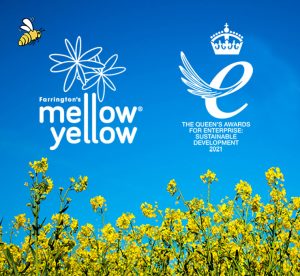
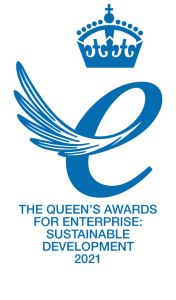
Understanding LEAF’s Mission:
LEAF’s core mission revolves around connecting farmers and consumers to promote environmentally responsible and sustainable food production. Established in 1991 in the United Kingdom, LEAF has grown into an international organisation, spreading its ethos of sustainable farming far and wide. Their approach combines practical, science-based solutions with community engagement, fostering a holistic approach to agricultural sustainability.
Integrated Farm Management (IFM):
At the heart of LEAF’s philosophy lies Integrated Farm Management (IFM). It encourages farmers to adopt best practices that enhance biodiversity, minimise chemical usage, and improve energy efficiency. IFM is made up of nine sections:
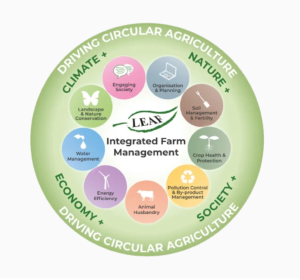
1. Organisation and Planning
2. Soil Management and Fertility
3. Crop Health and Protection
4. Pollution Control and By-product Management
5. Animal Husbandry
6. Energy Efficiency
7. Water Management
8. Landscape and Nature Conservation
9. Engaging Society
By embracing IFM, farmers can optimise their land’s potential while safeguarding the natural resources that sustain us all.
The LEAF Marque:
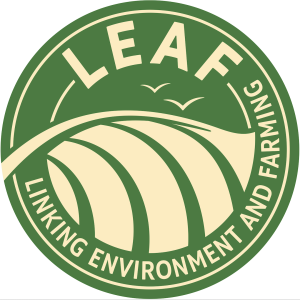
One of LEAF’s most recognised initiatives is the LEAF Marque, a certification scheme that identifies sustainably produced food to consumers. By displaying the LEAF Marque logo on our Mellow Yellow products, it assures consumers that they come from farms practicing environmentally responsible methods. This strengthens trust between consumers and farmers, driving demand for sustainable products and incentivising farmers to adopt more sustainable practices.
Farm Demonstration Network:
People have always been at the heart of LEAF’s vision of a world that is farming, eating and living sustainably. Building knowledge and understanding of sustainable farming helps highlight the connections between all living things – soil, plants, animals and people.
As a LEAF Demonstration Farm and LEAF Open Farm Sunday host farmer, we welcome people from all walks of life to experience farming first hand. Bringing people closer to farming and how their food is produced, encourages individuals to make sustainable choices in their everyday lives.
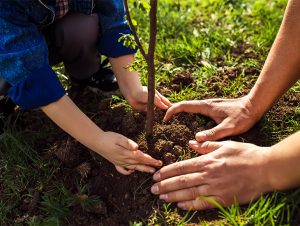
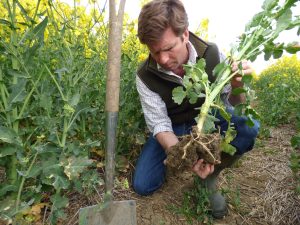
LEAF’s dedication to promoting sustainable farming practices has made a substantial impact on the agricultural sector and beyond. By providing farmers with the tools to embrace Integrated Farm Management, offering the LEAF Marque certification to assure consumers and fostering collaborations through their vast network, LEAF has become a driving force for positive change in 27 countries with over 900 LEAF Marque certified businesses worldwide, including over 40% of UK grown fruit and vegetables grown on LEAF Marque farms.
Working alongside LEAF, agricultural stakeholders worldwide are adopting sustainable practices, enhancing biodiversity and conserving vital natural resources. As we collectively address the challenges of climate change, LEAF’s commitment to cultivating sustainability serves as an inspiring model for organisations, farmers, and consumers alike. Together, with organisations like LEAF leading the way, we can build a more sustainable future for generations to come.
Our Journey to Carbon Neutrality
In a world where environmental concerns have reached a critical point, companies embracing sustainability become beacons of hope. At Farrington’s Mellow Yellow, we have taken a remarkable step towards mitigating our environmental impact. With a resolute commitment to sustainability, we have achieved carbon neutrality while collaborating with esteemed organisations like LEAF (Linking Environment And Farming) and One Carbon World. This blog post delves into Farrington’s Mellow Yellow’s remarkable journey towards carbon neutrality and our partnerships that contribute to a greener, more sustainable future.
The Vision for Sustainability
Even before launching Mellow Yellow, sustainability was at the heart of Duncan Farrington’s farming practises. Working to LEAF Integrated Farm Management principles, he used energy efficient machinery, planted trees hedges and wildflower areas to increase biodiversity, and recognised the importance looking after soils in growing the foods we eat. The principles of doing the right things with Mellow Yellow have always been deeply rooted in our commitment to the environment. From the very beginning, we envisioned creating a company that not only provided high-quality oils and dressings, but also operated responsibly, leaving a minimal ecological footprint. With this vision in mind, we set out on a journey to become carbon neutral.
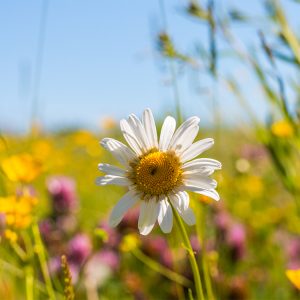
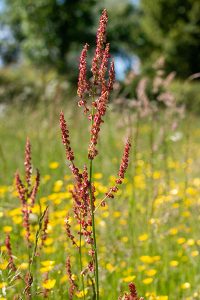
Becoming Carbon Neutral
Achieving carbon neutrality is no small feat, especially for a company operating in the agricultural sector. We adopted a multi-faceted approach to reduce our carbon emissions and offset the remaining unavoidable emissions. Through meticulous planning, innovative technologies, and sustainable practices, we managed to significantly decrease our carbon footprint.
We invested in energy-efficient machinery, optimised transportation routes and implemented renewable energy sources to reduce emissions throughout our supply chain. We also continue to focus on responsible land management and biodiversity conservation on our’s and our grower farms, supplying rapeseed to our factory, through the LEAF Marque accreditation .
Around the edges of our fields we have wildflowers. In these wildflower meadow margins, as they are known, we have a huge variety of different plant species, insects and birds, improving biodiversity and creating wildlife habitats. As well as providing habitats for insects and improving biodiversity, our wildflowers also help us out on the farm. The wildflowers attract pollinators, which are essential for crop pollination, plus the insects in the wildflowers act as a natural pest control on our crops.
On our roofs we have installed solar panels which generate around 50% of the electricity used in the business. This is combined with installing the latest LED lighting and most efficient compressor to run the bottling machinery, both of which reduce the amount of electricity used. We also encourage everyone to do the simple things like turning lights off when we they are not needed.
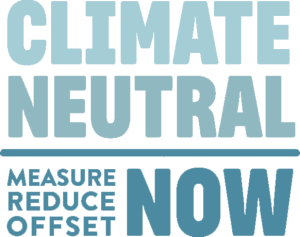
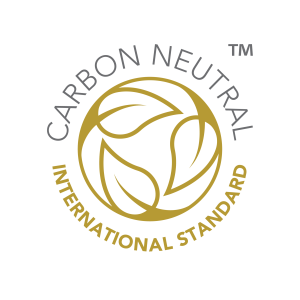
Collaborations with LEAF, One Carbon World and AgricaptureCO2
Farrington Oils’ journey towards sustainability was further strengthened by our collaborations with LEAF and One Carbon World. LEAF, a renowned organisation, works towards promoting sustainable farming practices that are beneficial for both the environment and the farmers. Through this partnership, we gained valuable insights and guidance on adopting regenerative agricultural practices that boost soil health and sequester carbon.
One Carbon World is a resource partner of the United Nations Climate Neutral Now initiative, is committed to emission reduction strategies and projects that meet the highest standards, reduce carbon emissions, and contribute to sustainable development. One carbon world played a crucial role in Mellow Yellow’s mission to achieve carbon neutrality. Carbon neutral means achieving net zero carbon dioxide emissions by balancing carbon emissions with carbon removal (often through carbon offsets).
To date our carbon neutrality has been achieved with the help of One Carbon World meticulously calculating carbon footprint from our years of data collected, whilst we have been trying to reduce the total emissions we generate. The net emissions are then offset through United Nations approved schemes.
As a sustainable farm-based business there is an opportunity to offset all of our emissions internally through the carbon dioxide absorbed in the soils we manage on our farm through a process called Carbon Sequestration. This is an area of interest that Duncan Farrington has looked at for over twenty years of analysis of his soils, but it is not yet recognised internationally as an accepted measure to reduce potential greenhouse gas emissions. Since becoming certified as Carbon Neutral, Farrington Oils have been invited to be the British case study in a pan European study called AgricaptureCO2 looking into the measurement and verification of soil carbon content and general farm biodiversity. Through this collaborative project it is hoped that sustainable farming can officially become part of the global solution to help reverse climate change.
Why we don’t plough
The plough turns over and breaks up the soil surface to create a seed bed to plant crops in. The advantages are that it provides soils free from weeds, provides good conditions and soil structure for plants to grow in. It also gives a nutritional boost to the plants as bacteria breakdown minerals for the plants to feed off.
However, ploughing can also be detrimental to the environment for several reasons. Firstly, it disrupts the soil structure, leading to erosion and loss of valuable topsoil, which affects soil fertility and water retention. Secondly, ploughing releases carbon dioxide stored in the soil into the atmosphere, contributing to greenhouse gas emissions and climate change.
Sustainable farming can help preserve soil health, reduce carbon emissions and promote environmental conservation.
Empowering Consumers
In addition to our internal efforts, we have also made it a priority to educate and empower consumers to make sustainable choices. We transparently share our sustainability journey with our customers, encouraging you to join the movement towards a greener future. By supporting the Mellow Yellow brand, you become part of a collective effort to combat climate change and preserve the planet for future generations.
Our remarkable achievement at Farrington Oils of becoming carbon neutral is a testament to the power of dedication, collaboration, and innovation in the face of environmental challenges. Our partnerships with LEAF, One Carbon World and AgricaptureCO2 have proven that collective action can make a meaningful impact in the fight against climate change.
Let’s continue to work together towards a carbon-neutral and sustainable future.
The environment has always been at the heart of everything we do.
rePurpose Global is committed to tackling the plastic pollution crisis head-on by offering sustainable, eco-friendly alternatives and actively working towards a plastic-neutral future. Together, we are committed to making a tangible difference in protecting our planet and creating a more sustainable future. In this blog post, we will explore the collaboration between Farrington Oils and Repurpose Global, whilst highlighting the shared values and the transformative impact we have achieved in 2022.
Plastic Waste
Global plastic waste production has reached over 400 million tonnes annually. Just 9% of this will be recycled. Most of it will find its way into landfills or leak into nature, creating havoc across coastlines and fragile ecosystems.
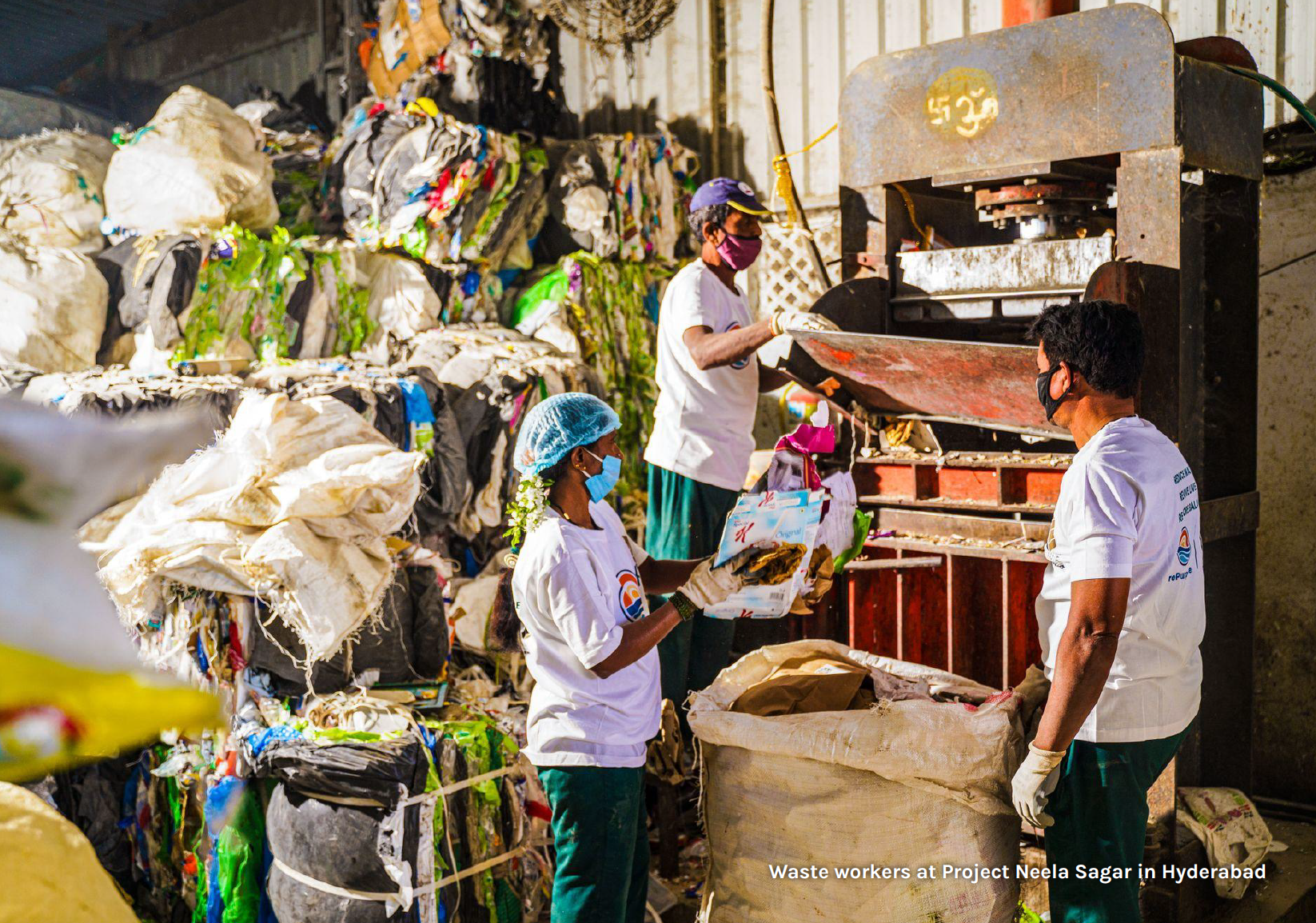
Overall, rePurpose Global, has been able to recover a huge 8,845 tonnes of plastic from nature across 6 countries as of December 2022 – That’s about the weight of 491 Million plastic bottles! Of the 8,845 tonnes of plastic, a massive 862 tonnes of plastic was recovered at Project Neela Sagar alone.
Project Neela Sagar
Through Project Neela Sagar, rePurpose Global endeavours to recover over 9,000 tonnes of low-value plastic waste by 2030, while positively impacting the lives of 1,000+ informal waste collectors.
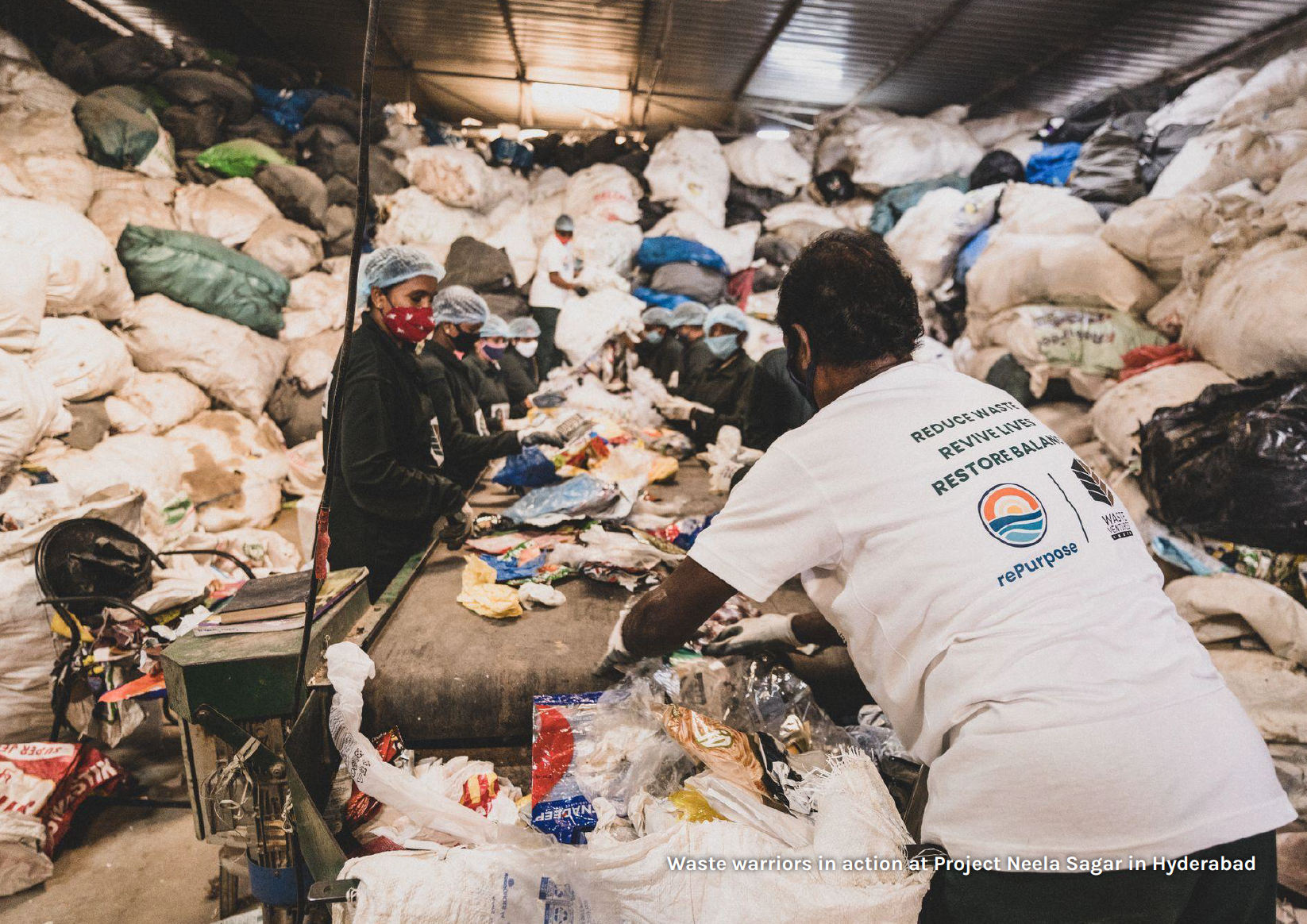
Farrington Oils and rePurpose Global understand the significance of industry leadership in driving sustainable change. By working together, we aim to inspire other businesses within the farming sector to adopt eco-friendly practices. We are deeply committed to sustainability, and our mission is to gradually reduce our plastic footprint year on year.
Becoming Plastic Neutral
You can read how we firstly became Plastic Neutral and the work we have been doing with rePurpose in a previous blog post – simply click here.
If you would like to work out your own plastic footprint, rePurpose have a simple calculator for you here and even have options for individuals to offset their personal footprints and become plastic neutral.
Sources: rePurpose, Neela Sagar 2022 report.
At Farrington Oils, we believe in making a positive impact on the world around us. This year, we are proud to announce our chosen charity, Toilet Twinning, as part of our commitment to improving sanitation and transforming lives. Toilet Twinning is an inspiring organisation dedicated to addressing the global sanitation crisis by providing access to clean and safe toilets for those in need. In this blog post, we will delve into the vital work of Toilet Twinning, the impact it has on communities, and how you can get involved to help make a difference.
We have proudly twinned all 3 toilets available at Farrington Oils HQ with the following…
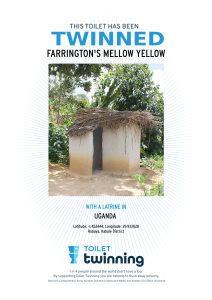 Uganda, Rubaya, Kabale District
Uganda, Rubaya, Kabale District
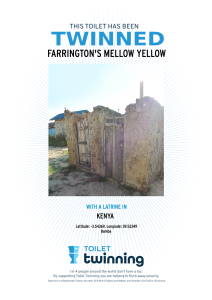 Kenya, Bamba
Kenya, Bamba
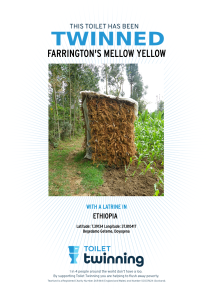 Ethiopia, Begedamo Geteme, Doyogena
Ethiopia, Begedamo Geteme, Doyogena
Why Toilet Twinning?
The underlying principle of Toilet Twinning is to raise awareness about the global sanitation crisis and engage individuals and communities in taking practical steps towards addressing it. Through their website, people can “twin” their toilets by making a donation, which goes directly towards funding the building and maintenance of latrines in areas where they are desperately needed. Toilet Twinning funds global water and sanitation programmes run by Tearfund.
One of the remarkable aspects of Toilet Twinning is the personal connection it creates between donors and the communities they are supporting. After twinning their toilet, individuals receive a certificate that displays the GPS coordinates of the latrine block they are supporting, along with a photograph and information about the location. This tangible connection helps donors understand the impact of their contribution and the transformative effect it can have on people’s lives.
Tearfund’s partners work alongside communities, bringing people together in workshops and action groups focused on issues that concern them – such as farming. You can view their most recent report here.
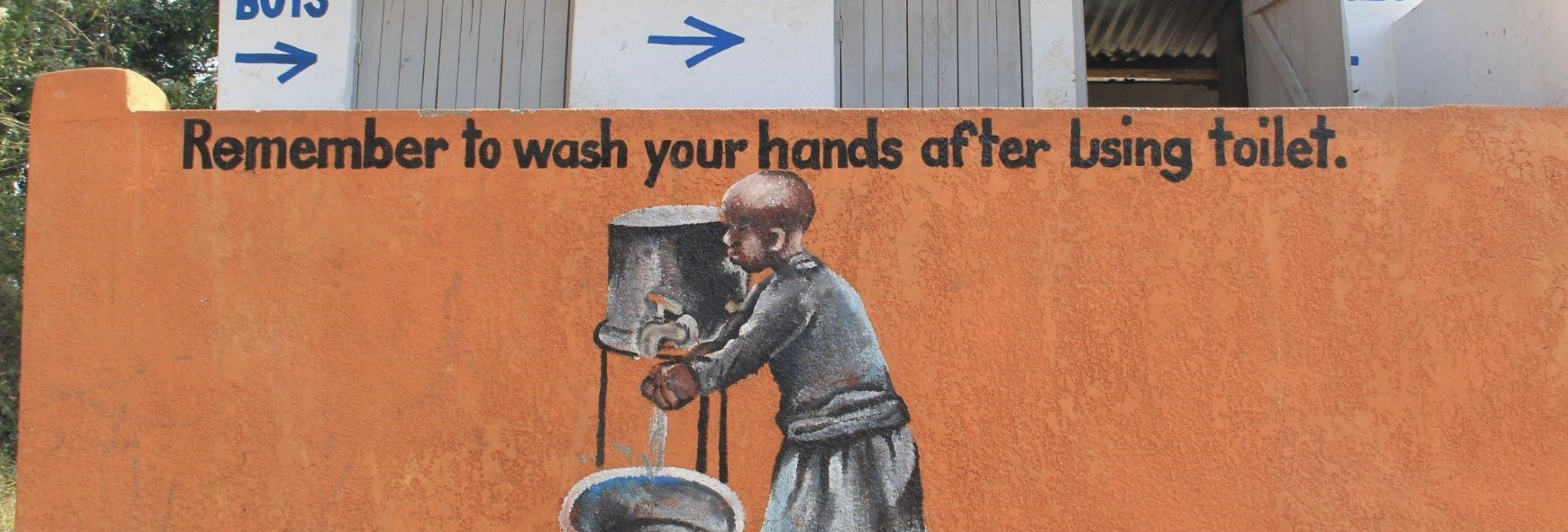
The Impact of Toilet Twinning:
The work of Toilet Twinning extends beyond just providing toilets. They also emphasise the importance of proper hygiene practices and provide education and training to communities on sanitation and health-related issues. By taking a holistic approach, the organisation aims to improve overall health, reduce the spread of diseases, and empower communities to break free from the cycle of poverty and illness.
Toilet Twinning mission aligns with the Sustainable Development Goals set by the United Nations, specifically Goal 6, which focuses on ensuring access to clean water and sanitation for all. By supporting the organisation’s efforts, individuals and organisations contribute to global efforts to achieve this crucial goal, making a tangible and lasting difference in the lives of vulnerable communities.
How You Can Make a Difference:
We encourage everyone to join us in supporting Toilet Twinning.
Every pound counts and goes directly towards building toilets, providing hygiene education, and supporting ongoing projects. Your generosity can transform lives and communities.
Toilet Twinning is a unique and innovative initiative that combines awareness-raising, fundraising, and community engagement to address the global sanitation crisis. By twinning toilets, individuals and organisations play a vital role in improving hygiene conditions, promoting health, and empowering communities in need. Through their work, they exemplify the power of collective action and individual contributions in creating a world where everyone has access to safe and dignified sanitation facilities.
Our Support
At Farrington Oils we are excited to support Toilet Twinning and contribute to their mission of improving sanitation worldwide. Together, we can help break the cycle of poverty, improve health outcomes, and empower communities to thrive. Let’s unite and make a difference by providing clean and safe toilets to those in need. Join us in supporting Toilet Twinning and be a part of this transformative journey. Together, we can create a world where everyone has access to basic sanitation and the opportunity to lead a healthier, more dignified life.
Images sourced from toilettwinning.org
If you’ve used Mellow Yellow Cold Pressed Rapeseed Oil for deep frying, follow our tips on what to do with oil after deep frying…
Reuse
As Mellow Yellow Rapeseed Oil has a high smoke point, you can reuse this oil after deep frying. Once you have used your oil for deep frying, leave it to cool down. Once it is completely cool, pour it through a muslin cloth, coffee filter paper or kitchen roll into a glass bottle or jar that can be sealed. Label the jar with the date you used it for deep frying, what you used it for and the best before date. Store your oil in a cool, dark place and use within six weeks. It is best to use the oil for deep frying similar foods in case any flavour has been imparted into the oil.
Recycle
Containers of cooking oil can be recycled by some local recycling centres. Check with your local council to see if they offer this service and then take it to the recycling centre in a sealed bottle or jar.
Dispose
If you need to dispose of your oil, you could put a few sheets of something absorbent, eg, kitchen roll or newspaper into your bin and then pour the oil onto this. The oil should then be absorbed and won’t make a mess in your bin. If you don’t have anything absorbent to pour the oil onto, you can wait until it has cooled down and then pour it either back into the bottle or into a glass jar with a lid and place in your rubbish bin.
What not to do with oil after deep frying
– Touch too soon – Make sure to leave to cool fully, oil gets VERY hot, so make sure it has had plenty of time to cool down before you touch it.
– Put on the compost heap – Pouring leftover cooking oil onto your compost heap can attract rodents and slow down the composting process.
– Pour down the sink – Never pour leftover oil down your sink as it will eventually blog the pipes and contributes to larger drainage problems.

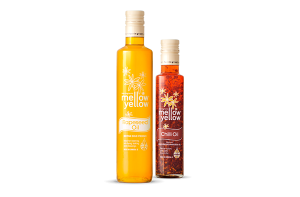 Oils
Oils Rapeseed Oil
Rapeseed Oil Chili Oil
Chili Oil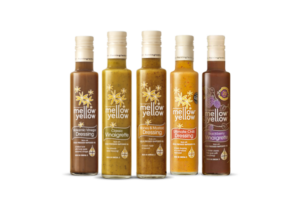 Dressings
Dressings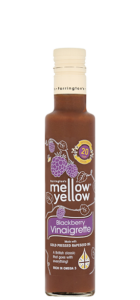 Blackberry Vinaigrette
Blackberry Vinaigrette Classic Vinaigrette
Classic Vinaigrette Balsamic Dressing
Balsamic Dressing Honey & Mustard
Honey & Mustard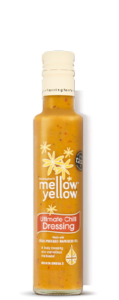 Ultimate Chilli Dressing
Ultimate Chilli Dressing